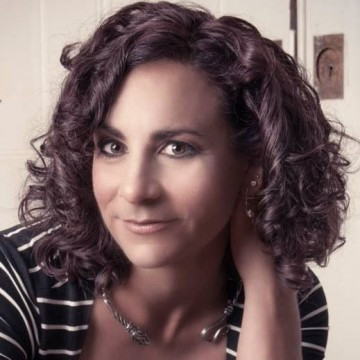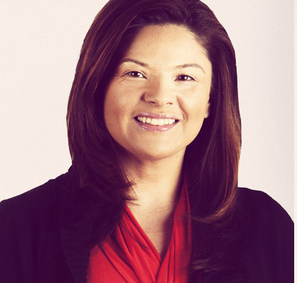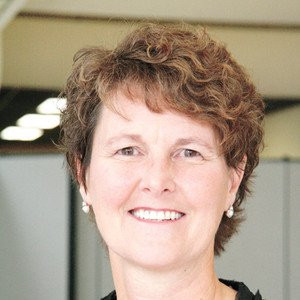It’s All About Education: Can Education Drive Social Change?
Wednesday, May 13, 2015
If you are a regular reader of my column, you may know that I was born in Washington, DC and raised in Maryland. I started my teaching career in Columbia, Maryland, a suburban community between DC and Baltimore. I’ve paid close attention to the news out of Baltimore in recent weeks. I’ve also worked with families across the economic spectrum, from those in poverty to those who can afford to send multiple children to private schools.
The events unfolding in Baltimore are not a local or regional issue; there are many communities across our nation, particularly in cities, which are dealing with similar issues. Inner city neighborhoods and schools are full of individuals who, statistically, have far fewer opportunities to succeed and far greater challenges in life than their suburban counterparts.
In West Baltimore, the neighborhood where Freddie Gray lived and died, the median household income is $24,735; more than one-third of the residents receive food stamps. From 2009 – 2013, more than 3% of children under age 6 in West Baltimore tested positive for dangerous levels of lead in their blood, double the figure for the rest of the city. An African American baby born in Baltimore is nine times more likely to die before his first birthday than a Caucasian baby.
GET THE LATEST BREAKING NEWS HERE -- SIGN UP FOR GOLOCAL FREE DAILY EBLASTUnfortunately, these statistics are similar to those from urban centers around the United States. According to an infographic produced in 2014 by the Initiative for a Competitive Inner City (ICIC), 32% of all inner city residents live in poverty, compared with 13% of all Americans. Unemployment rates average 14%, compared with 9% for all Americans. Students in large cities are significantly more likely to drop out, with high school graduation rates ranging from 30% to 50%.
Many of the residents of these cities have a tumultuous relationship with law enforcement officers. While crime may tend to be higher in economically depressed areas, police officers may also be more likely to overreact to perceived threats. The City of Baltimore has paid $5.7 million since 2011 in settlements or court judgments related to police brutality and civil rights violations. And they are not alone.
The public outcry over police brutality in the cities of Baltimore, Ferguson, and Staten Island is the latest in a list of incidents around the country. Over the past two years, there have been similar cases in Cleveland, OH; North Charleston, SC; and Albuquerque, NM. It appears that race is as much a factor as socioeconomic status: a report published in 2014 found that young black males are 21 times more likely to be shot by police than their white counterparts.
How does all this relate to education? Education is the best tool we have to create social change. Launa Schweizer, a teacher in Brooklyn, NY, was in the process of helping her eighth graders plan a class trip to Baltimore when the protests and riots erupted. Over the past two weeks, her students have researched and discussed numerous issues, not just in Baltimore but also in American history. As Ms. Schweizer points out, “Students develop skills and independence much more readily when they are empowered to engage in meaningful work.”
Last week, I attended a presentation by Dr. Lonnie G. Bunch III, the director of the National Museum of African American History and Culture, scheduled to open on the national Mall in Washington, DC in 2016. Senator Jack Reed remarked in his introduction that this museum will be a vital institution for all Americans: “We strive to be a nation united, but we’re discovering that sometimes we lead separate lives.”
Dr. Bunch stressed that the museum will use African American culture as a lens to understand what it means to be an American; it will not be a separate story, but rather a different entry point into American history. It will be a place that allows us to remember, especially all those who are traditionally left out of the narrative. He stated, “We need to grapple with who we once were, who we are today, and who we could become.”
I’ve written numerous columns about socioeconomic inequity in our schools and the relationship between poverty and academic achievement. These are not issues that affect only low-income people or those who live in cities. These are problems that affect every American, and we should all be concerned with solving them.
The right to public education for all children in America is one of the tenets upon which our nation rests; we believe that every child has the right to attend school and to pursue his or her goals in life. However, according to a study released last month. racial and economic segregation begins as early as preschool. If we truly want social change, it will have to start with early childhood education and continue through high school.
As the Brooklyn students planning their field trip to Baltimore discovered, there are often deep roots that run beneath the surface of our society. Schools and educators have the opportunity and the responsibility to illuminate both historical events and the news of today by providing students with resources, research skills, communication tools, and a safe place for respectful discourse.
We must engage in this discourse, as well. Education can be a force for change, but only if we value that change and commit to it. The quality of a child’s education should not depend upon the community she lives in, the income level of her parents, or the color of her skin. Today, it does. Tomorrow, it doesn’t have to. Let’s take responsibility for the inequities in our society and take the steps necessary to change them.
Lauri Lee is an independent consultant with over twenty years of experience in both public and private education, with learners from infants through adults. With experience in teaching, marketing, communications, social media, development, admissions, and technology, she is able to synthesize many of the issues facing our educational system today. She lives in Providence, RI with her family, a big dog, and a small cat. She blogs at http://www.AllAboutEducation.net and you can follow her on Twitter at @fridovichlee.
Related Slideshow: RI Experts on the Biggest Issues Facing Public Education
On Friday November 22, the Hassenfeld Institute for Public Leadership at Bryant University, the Latino Policy Institute of Roger Williams University, the Rhode Island Association of School Committees, the Providence Student Union, and RI-CAN: Rhode Island Campaign for Achievement Now will host Rhode Island leaders in the public and nonprofit sectors for a symposium on "the civil rights issue of the 21st century, adequacy and equity and the State of Education in Rhode Island."
Weighing in on the the "three biggest factors" facing education in the state today are symposium participatnts Gary Sasse, Founding Director of the Hassenfeld Institute for Leadership; Christine Lopes Metcalfe, Executive Director of RI-CAN; Anna Cano-Morales, Chairwoman of the Board of Trustees, Central Falls Public Schools and Director, Latino Policy Institute at Roger Williams University; Tim Duffy, Executive Director, RI Association of School Committees; and Deborah Cylke, Superintendent of Pawtucket Public Schools.
Related Articles
- It’s All About Education: Some of Education’s Best Ideas from 2014
- It’s All About Education: The Rise in Kindergarten Readiness Testing
- It’s All About Education: Social Promotion is Not the Problem
- It’s All About Education: Schools that Harness the Power of Nature
- It’s All About Education: Free College Tuition - Why Just Community College?
- It’s All About Education: The High Cost of Higher Education
- It’s All About Education: How Can We Ensure that Kids Have Great Teachers?
- It’s All About Education: Why Common Core Won’t Help Our Children
- It’s All About Education: Will Charter Schools Fix Our Public School System?
- It’s All About Education: What is an “Excellent” Teacher, Anyway?
- It’s All About Education: Can Universal Preschool Close the Achievement Gap?
- It’s All About Education: A Recipe for Disaster - Common Core Standards for Kindergarten
- It’s All About Education: Inequities in the College Admissions Process
- It’s All About Education: Failure to Launch - It’s Not Just a Movie
- It’s All About Education: Learning Life Skills at Hope High
- It’s All About Education: School Choice - Vouchers and Tax-Credit Scholarships Don’t Pay
- It’s All About Education: Making a Commitment to Rhode Island’s Children
- It’s All About Education: How Poverty Impacts Brain Development and Learning
- It’s All About Education: After School Programs Make a Difference
- It’s All About Education: Choosing the Right School for Your Child
- It’s All About Education: Is the American Dream a Pipe Dream?
- It’s All About Education: How Vaccination Affects Schools – and Society
- It’s All About Education: Changing Lives with School Lunches
- It’s All About Education: How Breakfast Could Help Close the Achievement Gap
- It’s All About Education: Re-Imagining Our Educational System













